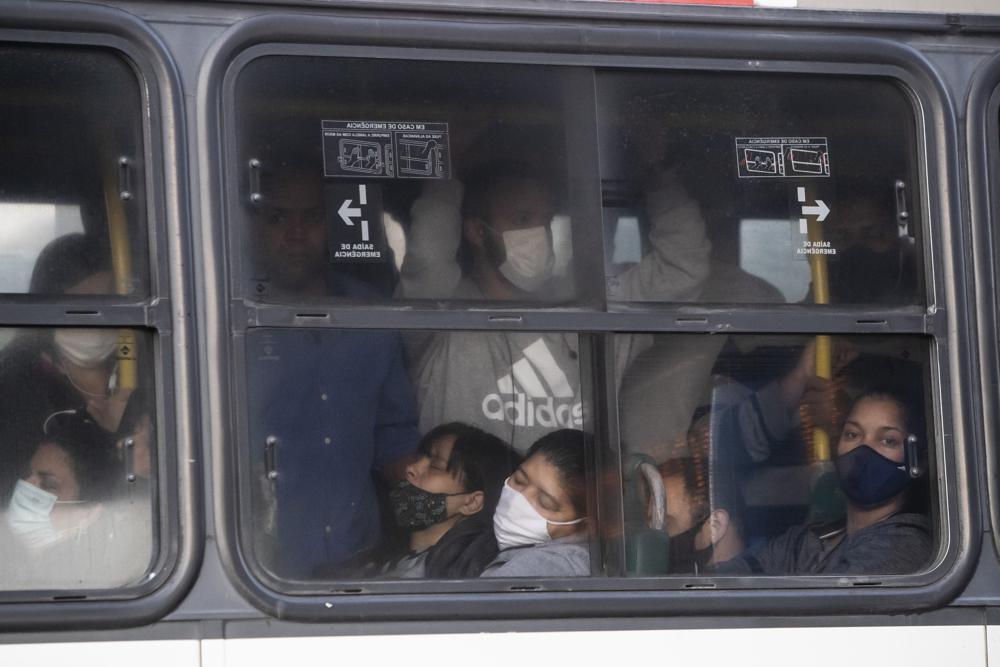Rio de Janeiro/Sao Paulo (Brazil): With the number of coronavirus deaths starting to recede in Brazil, a renewed sense of optimism has led state governors to roll back restrictions, soccer fans are starting to return to stadiums, and the mayor of Rio de Janeiro has said the city’s famous New Year’s party is back on.
But one question looms over these early signs of recovery: What will happen as the delta variant of COVID-19 spreads through the mostly unvaccinated country, which already has the world’s second-highest death toll with 547,000 fatalities?

The variant is boosting cases and deaths globally after a period of decline, and the World Health Organization anticipates it will become dominant within months. The race is on to vaccinate as many Brazilians as possible.
Countries that succeeded in doing so, like the U.K., have seen infections soar in recent weeks — but without a corresponding rise in serious illnesses or deaths.
Experts are concerned that it is unlikely Brazil can do the same in time.
“It will be explosive,” said Gonzalo Vecina, a professor of public health at the University of Sao Paulo. “There will be a new wave. We are opening too much.”
Brazil’s Health Ministry counted 140 cases of the delta variant by Friday, including its three most populous states, and 12 deaths. Analysts say the figures are vast undercounts due to lack of testing and genome sequencing.
President Jair Bolsonaro has long opposed restrictions and played down COVID-19′s risks, often saying infection is inevitable. Lawmakers have begun investigating his administration’s handling of the pandemic, particularly why officials appear to have been slow to acquire vaccines.
Also Read: Bolsonaro fined for flouting mask order at motorcycle rally
Health Minister Marcelo Queiroga says getting more of the population vaccinated is the best way to stop the variant, but he insists that Brazil must resume its economic activities.
“We have available hospital bed capacity and we will live with this pandemic until we can control it definitively,″ Queiroga said Wednesday. He stressed the importance of knowing whether each person infected with the variant has already had one shot or two.
British researchers found that two doses of either the Pfizer or AstraZeneca vaccines were only slightly less effective at blocking delta’s symptomatic illness, compared with earlier variants. Importantly, the vaccines were hugely effective at preventing hospitalization.
But just one dose proved far less effective than against other variants. That prompted Britain, which earlier extended the gap between doses, to speed up second shots. There’s little information on the efficacy of other vaccines against the variant.

That’s worrisome for Brazil, where 17% of the population is fully vaccinated and 44% have received the first of two shots. The AstraZeneca shot makes up nearly half of all vaccines administered, China’s Sinovac more than a third, and Pfizer most of the rest.
Also Read: Bolsonaro worried about Covid vaccine side effects



